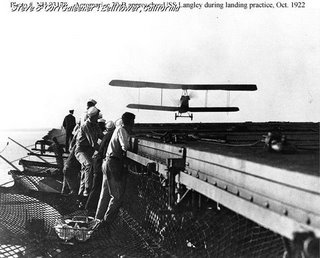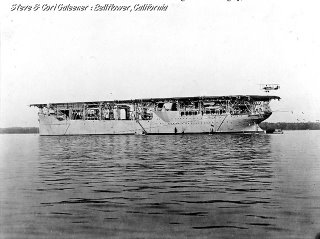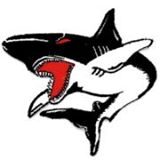Flightdeck Friday – Tailhook Edition
On October 26, 1922 LCDR Godfrey DeCourcelles Chevalier, USN made the first arrested landing aboard the USS Langley, a converted coal collier (ex-USS Jupiter) and the Navy’s first aircraft carrier, underway off Cape Henry, VA.
 Already an accomplished aviator (Naval Aviator #7), LCDR Chevalier had pioneered the installation of catapults on the Navy’s battleships and piloted the first plane to be launched by catapult in 1916. In 1917, he commanded the first naval air station in Dunkerque, France during WW1. In recognition of his aviation and leadership skills he was given charge of 100 aviators-in-training to develop and teach launch and landing techniques from an underway ship. In so doing, he used a variety of methods, to include a barge off Anacostia Naval Base in Washington DC and a turntable, similar to what the British used, at Willoughby Point on the Norfolk Naval Base.
Already an accomplished aviator (Naval Aviator #7), LCDR Chevalier had pioneered the installation of catapults on the Navy’s battleships and piloted the first plane to be launched by catapult in 1916. In 1917, he commanded the first naval air station in Dunkerque, France during WW1. In recognition of his aviation and leadership skills he was given charge of 100 aviators-in-training to develop and teach launch and landing techniques from an underway ship. In so doing, he used a variety of methods, to include a barge off Anacostia Naval Base in Washington DC and a turntable, similar to what the British used, at Willoughby Point on the Norfolk Naval Base.
 LCDR Chevalier trapped aboard Langley (CV-1) while flying an Aeromarine 39-B (s/n 606). As testimony to the experimental nature of the arresting gear on the Langley, after landing, the Aeromarine nosed over, but Chevalier was uninjured.
LCDR Chevalier trapped aboard Langley (CV-1) while flying an Aeromarine 39-B (s/n 606). As testimony to the experimental nature of the arresting gear on the Langley, after landing, the Aeromarine nosed over, but Chevalier was uninjured.
Subsequent to LCDR Chevalier’s trap, the first catapult launch off Langley occurred the following month, Nov 18 when CDR Whiting, was launched in a PT torpedo seaplane carrying a dummy torpedo. Sadly, 4 days earlier, LCDR Chevalier had died of injuries suffered in a crash.
So today, as we contemplate the intricate ballet that constitutes flight deck operations on our carriers, as we benefit from innovations like the Fresnel lens, ACLS, steam-powered catapults, angled decks and the like, let us pause and lift a toast in memory and honor of those who preceded us, flying string-bag kites off a converted collier. If only they could see what they wrought… 

